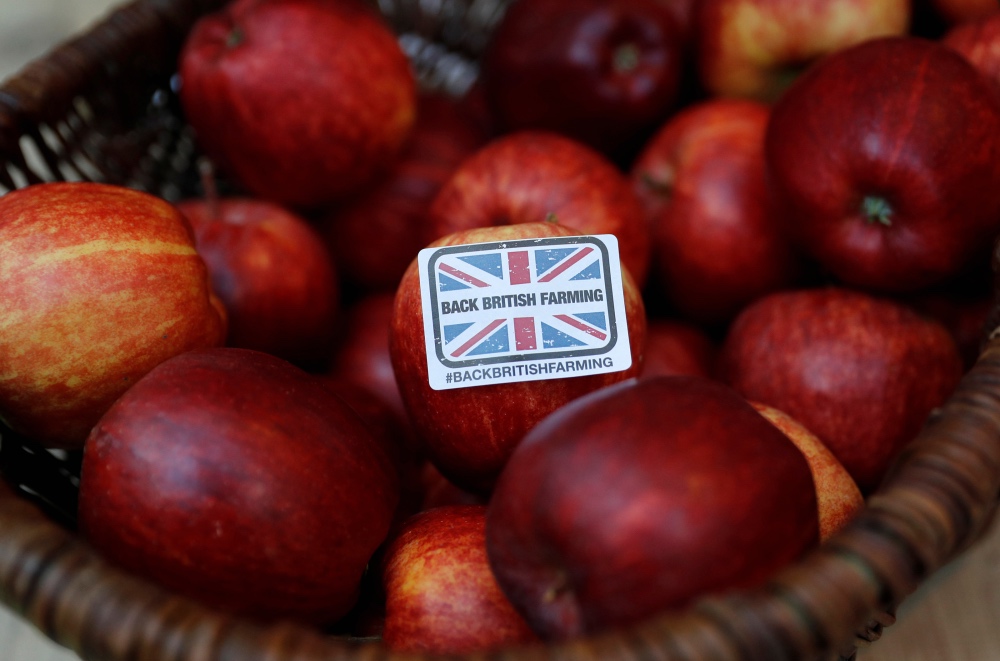Rome
Thomson Reuters Foundation
British shoppers looking to go green may be better off buying imported South American apples or Kenyan vegetables rather than locally produced foods that rely too heavily on fossil fuels, according to a new study.
Shoppers in developed countries increasingly concerned over greenhouse gas emissions associated with transporting food have embraced the idea of buying food produced locally.

A ‘Back British farming’ sticker is seen on a basket of apples during the National Farmers Union annual conference in Birmingham, UK, on 20th February. PICTURE: Reuters/Darren Staples
But that is not always true, according to a report published on Monday by the Hoffmann Centre for Sustainable Resource Economy at London-based British thinktank Chatham House.
“Placing British apples in cold storage for 10 months leads to twice the level of emissions as is expended transporting South American apples by sea to the UK,” said the report, released during the United Nations climate summit in New York.
Scale and type of transport also matter, said the report, which called for more trade policies that encourage sustainable and healthier food, and better land use systems.
“A consumer driving more than 10 kilometres to purchase one kilogram of fresh produce will generate more greenhouse gas emissions than air-freighting one kilogram of produce from Kenya,” it added.
In addition, maritime transport tends to generate 25 to 250 times less emissions than trucks, while air freight emits five times more on average than road transport.
“Crossing Europe by truck might therefore generate more emissions than making transatlantic shipments,” the report said.
But transport represents only one source of emissions, Christophe Bellmann, an associate fellow at Hoffmann and one of the report’s authors, told the Thomson Reuters Foundation.
“[Emissions] happen at the production stage, at the storage stage, at the disposal stage. And there are a whole lot of other factors you need to take into account – type of production, type of transport, seasonality,” he said.
Buying locally to save the planet makes sense when the produce is in season but thinking importing food is bad for the environment is “based on a very narrow understanding” of greenhouse gas emissions along the value chain, Bellmann added.
“Trade is often seen as a bad thing and part of the problem, but roughly 80% of the population is not able to produce all their food…who, in one way or another rely on imports to meet their needs,” he said.
Trade in agricultural products has more than tripled over the last two decades to reach $US1.3 trillion, but at a slower pace for staples such as wheat compared to products such as palm oil, soft drinks and other processed products, the report said.
This is in part due to protectionist policies on staple foods with countries wanting to promote self-sufficiency but in fact generates volatility on world markets and limit food availability in import-dependent countries, it said.
The report called on governments to remove “perverse incentives” – subsidies encouraging the overuse of fertilizers or pesticides, or the overproduction of certain commodities, and promote certain biofuels – and facilitate trade in more nutritious fruits and vegetables.






